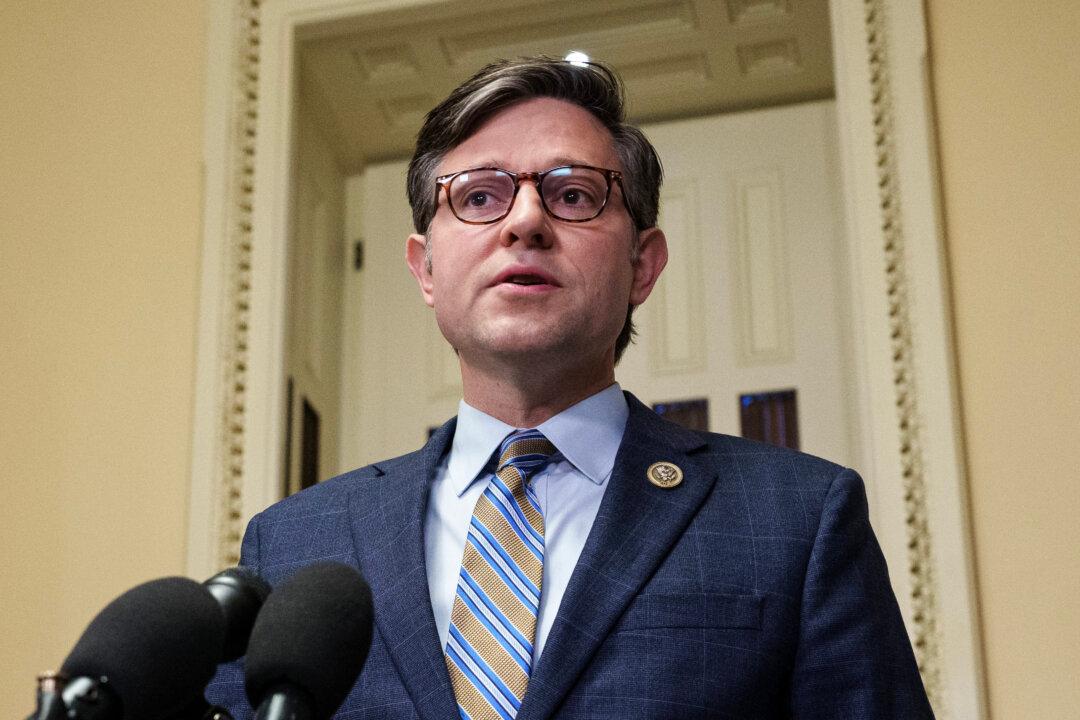House Speaker Mike Johnson (R-La.) declared the political concept of “separation of church and state” to be a misunderstanding of the founding fathers’ intentions, while he shared his views on the proper role of religion in government in an interview on Tuesday.
Appearing on CNBC’s “Squawk Box” on Tuesday, the newly elected speaker of the House said America’s founders “wanted a vibrant expression of faith in the public square because they believed that a general moral consensus and virtue was necessary to maintain this grand experiment in self-governance.”





